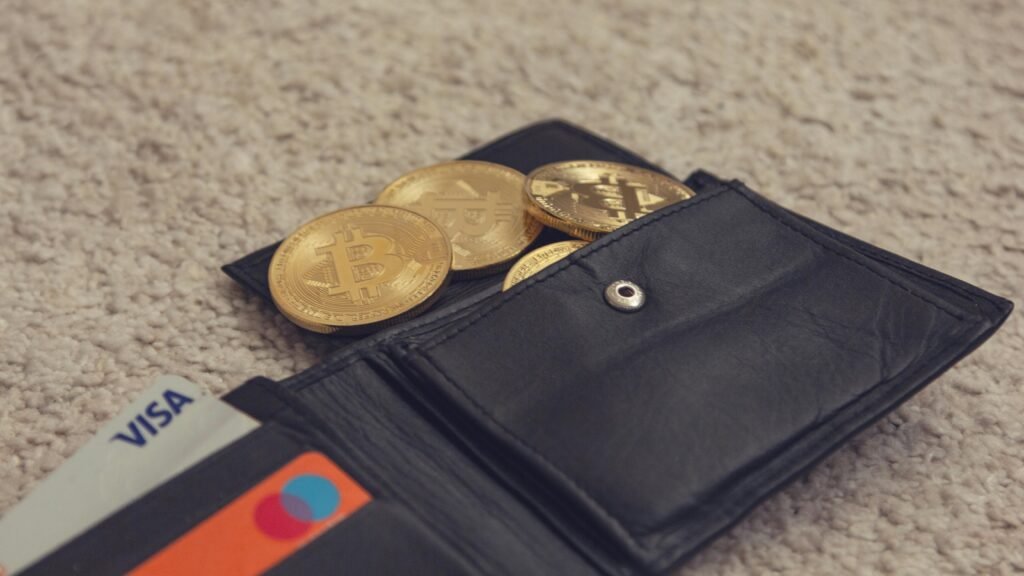As the world of digital assets continues to grow, securing your cryptocurrency has never been more critical. With increased adoption comes the risk of theft, hacking, and scams targeting crypto holders. In this blog post, we will explore the best practices to keep your cryptocurrency assets safe and secure in this ever-evolving landscape.
1. Use a Hardware Wallet
One of the most effective ways to secure your crypto assets is by using a hardware wallet. These wallets store your private keys offline, making them immune to hacking attempts. Unlike software wallets, which are connected to the internet, hardware wallets are physical devices that offer extra layers of security.
Benefits of Hardware Wallets:
- Offline Storage: Not connected to the internet, hence immune to online threats.
- Enhanced Security: Require physical access to authorize transactions.
- Backup & Recovery: Most hardware wallets provide backup and recovery options in case of loss.
2. Enable Two-Factor Authentication (2FA)
Enabling two-factor authentication (2FA) adds an extra layer of security to your crypto accounts and wallets. It requires you to input an additional code from your mobile device, making it harder for unauthorized users to gain access to your assets.
Steps to Enable 2FA:
- Install an authenticator app like Google Authenticator or Authy.
- Enable 2FA on your crypto exchange accounts, wallets, and any other services you use.
- Use 2FA every time you log in, withdraw funds, or make significant account changes.
3. Use Secure Passwords & Change Them Regularly
Your password is the first line of defense for any online cryptocurrency account. Ensure you use unique, complex passwords for each crypto-related service you access for optimum security. Avoid using simple passwords like “password123” or birthdays, as they can be easily guessed.
Best Practices for Secure Passwords:
- Use a mix of uppercase, lowercase, numbers, and special characters.
- Use a password manager like LastPass or 1Password to generate and store complex passwords.
- Change your passwords regularly and avoid reusing them across multiple platforms.
4. Be Wary of Phishing Scams
Phishing scams are one of the most common methods hackers use to gain access to your cryptocurrency assets. Scammers often send fake emails, messages, or social media links designed to look like legitimate services in order to steal your login credentials.
How to Avoid Phishing Scams:
- Always double-check URLs before clicking on them.
- Avoid opening emails from unknown senders.
- Bookmark trusted crypto websites to ensure you access the correct platform.
- Never share your private keys or recovery phrases with anyone.
5. Avoid Using Public Wi-Fi
Using public Wi-Fi networks to access your crypto accounts is risky. Public networks are more vulnerable to man-in-the-middle (MITM) attacks, where hackers can intercept your data and steal sensitive information.
Tips for Using the Internet Securely:
- Use a Virtual Private Network (VPN): A VPN encrypts your internet traffic, making it harder for hackers to intercept your data.
- Avoid logging into your crypto accounts over public or unsecured networks.
6. Keep Your Software and Devices Up-to-Date
Always ensure that your devices, software wallets, and crypto-related applications are updated with the latest security patches. Outdated software can have vulnerabilities that hackers can exploit.
How to Stay Updated:
- Enable automatic updates for your wallet and security software.
- Regularly check for updates on crypto exchanges and platforms you use.
- Install a reputable antivirus program on your devices to prevent malware.
7. Backup Your Recovery Phrases and Private Keys
Your private key is what allows you to access and control your cryptocurrency. If you lose access to your private key or recovery phrase, you risk losing your crypto assets permanently.
Best Practices for Backing Up:
- Write down your private key or recovery phrase and store it in a secure location, such as a fireproof safe.
- Do not store your private key or recovery phrase on any internet-connected device or cloud service.
- Consider making multiple copies and storing them in different secure locations.
8. Use Cold Storage for Long-Term Holdings
If you plan on holding your crypto assets for an extended period, consider using cold storage. Cold storage refers to keeping your assets completely offline, away from potential hacking threats.
Options for Cold Storage:
- Paper Wallets: Generate and store your keys on paper and keep them in a safe place.
- Offline USB Drives: Store your crypto-related files and private keys on USB drives that are not connected to the internet.
9. Beware of Fake Apps and Exchanges
There have been instances where fake crypto apps or exchanges were created to steal funds from users. Ensure you are downloading legitimate apps from trusted sources.
How to Identify Legitimate Apps:
- Download apps directly from official websites or trusted app stores (Google Play, Apple App Store).
- Check app reviews and ratings before downloading.
- Avoid using apps that request excessive permissions or seem suspicious.
10. Stay Informed and Educated
Finally, staying informed about the latest security threats and best practices is essential to protecting your crypto assets. The cryptocurrency space is constantly evolving, and so are the methods used by hackers.
Where to Stay Informed:
- Follow trusted crypto news sources like Cointelegraph or CoinDesk.
- Join crypto communities on Reddit, Twitter, and other social media platforms to discuss and learn about security topics.
- Regularly review your security measures and adjust them as needed.
Final Thoughts
Securing your cryptocurrency assets is a responsibility that should not be taken lightly. By following these best practices—using hardware wallets, enabling 2FA, securing passwords, avoiding phishing scams, and staying informed—you can greatly reduce the risk of losing your valuable assets. In the world of digital currencies, it’s better to be safe than sorry. Take the time to implement these strategies today to safeguard your crypto investments for the future.
Stay safe, and happy HODLing!


